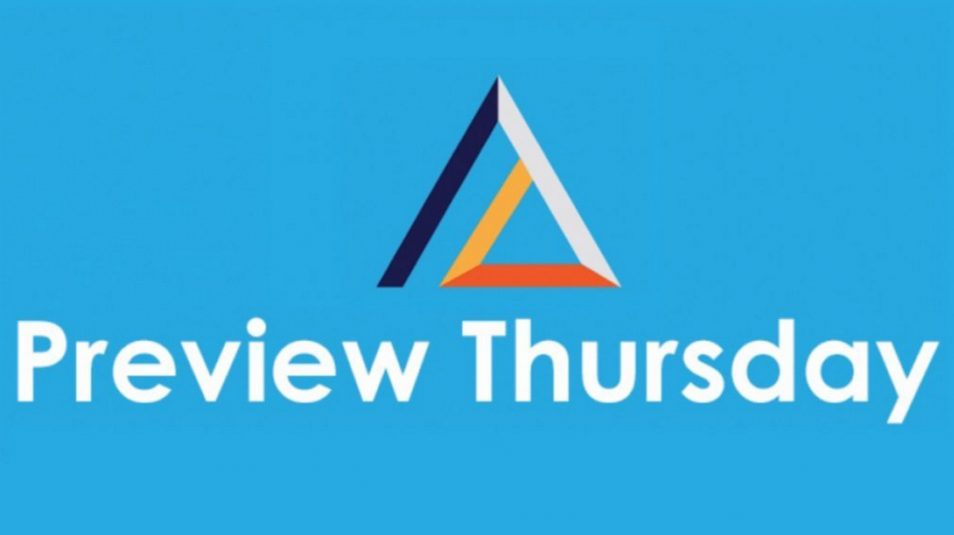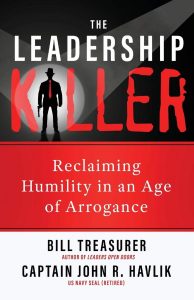Preview Thursday: The Leadership Killer

Best of Books
January 10, 2019
WI Admin
Topics
Bill Treasurer, hubris, leadership killer, Pressure, Preview ThursdayWe are pleased to present this excerpt from The Leadership Killer by Bill Treasurer and Captain John Havlik.

When Bigshots Buckle: Pressure Points All Leaders Face
Leadership is hard. All leaders will eventually confront this reality. Sure, leadership can be attractive and rewarding, but that doesn’t mean it’s obligation free. When you’re a leader, you face fast-moving situations and unrelenting demands. Your direct reports are wanting attention, fair treatment, growth opportunities, guidance, and recognition. At the same time, the people you answer to expect you to produce ever-better results. Everybody serves somebody. This is true even if you stand at the apex of the organization. In publicly held companies, the CEO answers to a board and shareholders. In privately held companies, the owners often answer to siblings, a spouse, and/or a board of advisors. Unless you’re the top banana in a banana republic, you answer to somebody. And that somebody always wants something from you.
Hubris - what we call the Leadership Killer - uses everyday leadership pressures as the entry point for its work. The three most common leadership pressures are the “Three Rs”:
- The pressures associated with being responsible to others. The Killer of hubris is on the lookout for the self-neglectful leader who is weighed down with the burden of responsibility. It knows that the more responsibilities the leader is carrying, the more the coiled spring or irresponsibility wants to burst forth with non-leaderlike expression. Such a leader, hubris knows, is vulnerable to making impulsive choices that give him temporary escape from carrying responsibility’s heavy burdens. It knows that the more exhausted a leader is, the more susceptible he’ll be to character erosion, where principles can soften to the point of being compromised. The Killer will implore the leader to take a bigger bite of the rosy apple of responsibility, knowing that the more he takes on, the more control it will soon have over the leader.
- The relentless pressure of having to produce results. The pressure to get results is incessant, often negatively impacting a leader’s mood and behaviors. A leader is far more likely to be grumpy, curt, and abrasive when results are languishing than when they are flourishing. When you’re in a leadership role your very success as a leader is judged by the results you get (or don’t get), and the drive for results can end up driving you.
- The pressures associated with constantly having to perform in the role of leader. Leadership is a role, a part you play in front of many audiences. In the stereotypical (and outdated) view of leadership, you are expected to carry yourself with a commanding presence so that people know that you’re “in charge.” You are expected to have more experience and knowledge than those you’re leading, and to have perfect answers to their many questions. The expectations of the role carry a subtler expectation: invincibility. You are expected to be strong to the point of being unshakeable and invulnerable. When things get dicey, you’re expected to push interference out of the way and say, “I got this.” It’s a farce, of course, and when a leader is meeting the pressure of their role by faking strength, people lose confidence fast.
The pressure points are not extraordinary or unusual. In fact, they’re rather commonplace and banal, making them the perfect camouflage for the Killer. Each pressure point is universal and familiar, which is exactly why the Killer so easily hides behind them. Hubris is always preparing, behind the scenes, hidden in the ordinary landscape of your leadership life, waiting for an entry point. It is against the backdrop of the normalcy of these leadership pressures that the Killer can stay well hidden, ready to strike when you least expect it. For it is when you are tremendous amount of leadership pressure that you’ll be the most vulnerable to succumbing to hubris’ influence and when you are most likely to do harm to yourself and others.
 Bill Treasurer is the founder of Giant Leap Consulting, a courage-building training company whose clients include NASA, Saks Fifth Avenue, UBS Bank, Walsh Construction, Aldridge Electric Inc., Lenovo, and eBay. More at BillTreasurer.com and LeadershipKiller.com.
Bill Treasurer is the founder of Giant Leap Consulting, a courage-building training company whose clients include NASA, Saks Fifth Avenue, UBS Bank, Walsh Construction, Aldridge Electric Inc., Lenovo, and eBay. More at BillTreasurer.com and LeadershipKiller.com.
 Captain John Havlik is a retired Navy SEAL and the Special Advisor for Giant Leap Consulting, who led elite special operations teams worldwide during a distinguished 31-year military career. More at CoachHavlik.com and LeadershipKiller.com.
Captain John Havlik is a retired Navy SEAL and the Special Advisor for Giant Leap Consulting, who led elite special operations teams worldwide during a distinguished 31-year military career. More at CoachHavlik.com and LeadershipKiller.com.






